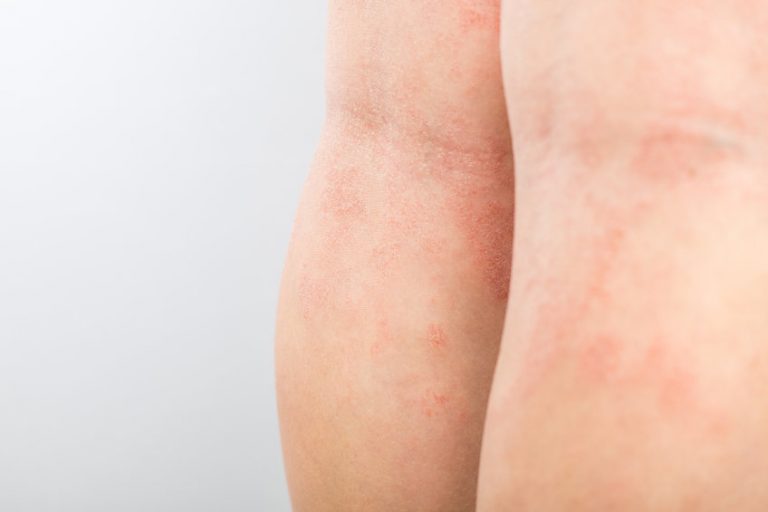
Eczema (or dermatitis) describes a grouping of reaction-pattern skin disorders with a variety of common characteristics. The acute disease is characterized by inflammation, redness, swelling, itching as well as some blistering, flaking and oozing.
Chronic dermatitis is identified by the thickened, leathery skin with excess ridges and darkened, dull appearance. When dermatitis becomes subacute, the intense reaction becomes milder and the blisters begin to heal.
Patients with a history of eczema must be careful to avoid dyes and fragrances, instead opting for gentle soaps and moisturizing creams and ‘free and clear’ detergents. Topical steroids are used to decrease itching and inflammation.
At MD Claiborne, our offices have phototherapy units – a non-immunosuppressive option for severe eczema in patients of all ages. In some cases, severe eczema can be treated with oral systemic medications such as methotrexate or cyclosporine, a hot new research topic as biologic drugs are evolving to modulate the immune system to prevent inflammatory diseases. The newest drug, Dupuixient, is a targeted biologic therapy for refractory atopic dermatitis patients. Dr. Cole Claiborne was involved in the clinical trials for this groundbreaking medication and can assess your suitability for this medication.
